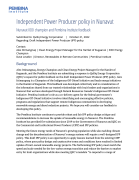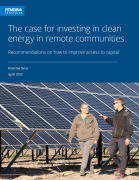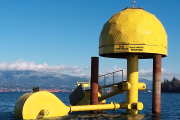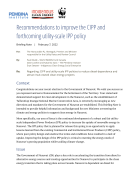Katarina Savic's Research & Analysis

Remote Communities
May 31, 2023
Article
Government action on UNDRIP and the clean energy transition
Upholding the rights of Indigenous Peoples is key to the energy transition in remote communities


Electricity, Remote Communities
October 31, 2022
Publication
Independent Power Producer policy in Nunavut
Nunavut IODI champion and Pembina Institute feedback



Remote Communities
August 29, 2022
Publication
Renewables in Remote Communities 2022 Conference
Summary Report




Remote Communities
April 22, 2022
Publication
The case for investing in clean energy in remote communities
Recommendations on how to improve access to capital

